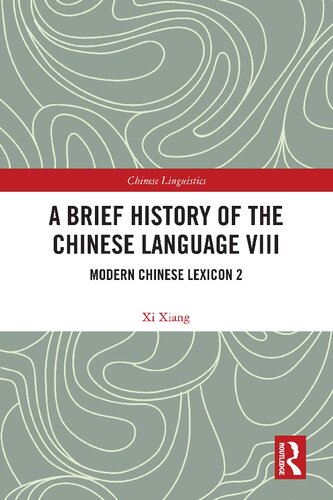

Most ebook files are in PDF format, so you can easily read them using various software such as Foxit Reader or directly on the Google Chrome browser.
Some ebook files are released by publishers in other formats such as .awz, .mobi, .epub, .fb2, etc. You may need to install specific software to read these formats on mobile/PC, such as Calibre.
Please read the tutorial at this link: https://ebookbell.com/faq
We offer FREE conversion to the popular formats you request; however, this may take some time. Therefore, right after payment, please email us, and we will try to provide the service as quickly as possible.
For some exceptional file formats or broken links (if any), please refrain from opening any disputes. Instead, email us first, and we will try to assist within a maximum of 6 hours.
EbookBell Team

4.4
52 reviewsAs the final volume of a multi-volume set on the Chinese language, this book studies the Western and Japanese influence on the lexicon of Modern Chinese, lexical developments in synonyms, idioms and proverbs in modern times, and lexical developments in contemporary times.
This volume first introduces the influence of foreign cultures on the modern Chinese lexicon with an emphasis on loanwords from Japanese and Indo-European languages. It then discusses the synonyms, idioms, and proverbs of Modern Chinese, elucidating their evolution, sources, and composition. The final part centers on the development of the Chinese lexicon after the May Fourth Movement in 1919, marking the beginning of the contemporary phase of the Chinese language. The author analyzes trends and types of neologisms and loanwords and analyzes the blend of Mandarin and dialect words and the necessity of lexical standardization.
Illustrated with abundant examples, this comprehensive groundwork on Chinese lexical history will be a must-read for scholars and students studying Modern Chinese language, linguistics, and especially for beginning learners of modern and contemporary Chinese lexicon.